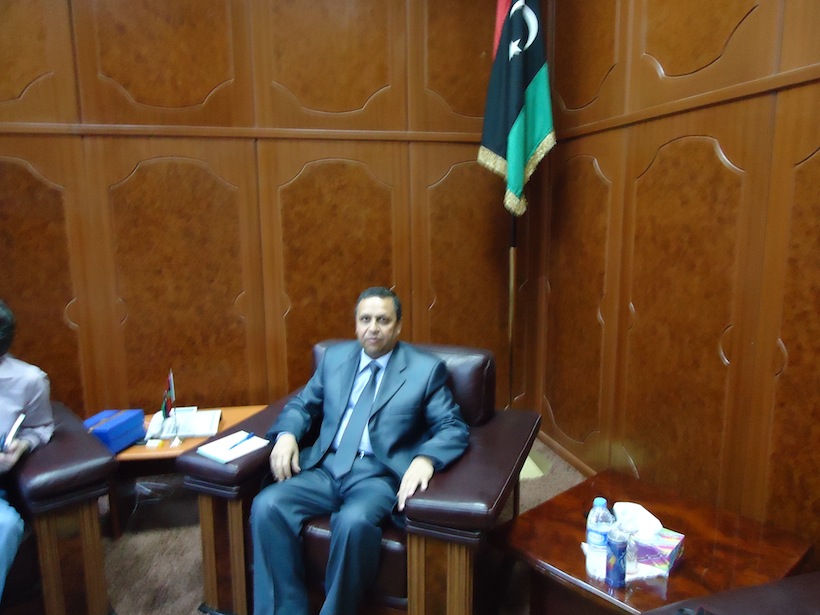By Nafissa Assed.
Tripoli, 29 April:
Eight months after the liberation of the Libyan capital Tripoli, the country today celebrated with a jamboree of creativity that aimed to match people’s aspirations and more.
The Tripoli International Poetry Festival held its first ever session at the Dar Al-Fagi Hassan Art Gallery across from the Arch of Marcus Aurelius in Tripoli’s old city. Twenty-nine poets from fourteen different countries took part. Also present were a selection of some of Libya’s finest poets. The event was attended by Minister of Culture Abdurrahman Habil. Besides, the festival started with a fantastic opening that delighted the whole audience, in which a traditional Libyan band played Malouf music.
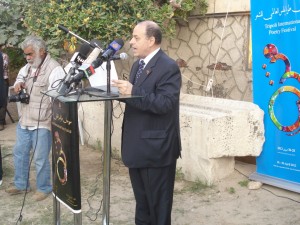
Every seat had a booklet with events of three-day festival and with a biography of every participating poet. The organising committee also gave every member of the audience its new magazine Arkno about poets and poetry.
The first day of the event started with introductory words by the culture minister who pressed home the importance of poetry in Libya. “Poetry is a way how a person expresses their inner heart in an attempt to connect to other human beings,” he said, adding “a poem is a great way to send a message to a diverse audience without having to be as detailed as prose”.
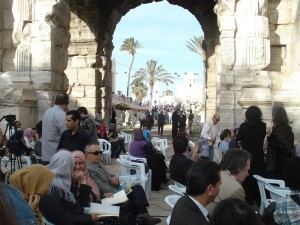
Following the introductory session, poetry readings featured seven famous poets: Taher Riyad from Jordan, Carolyn Forche (USA), Zakaria Muhammad (Palestine), Nujoom Al-Ghanem (UAE), Marilyn Hacker (USA) and Abdulwahab Al-Mulawah(Tunisia).
On Sunday, session featured a number of poems based on four different themes, the first being “Poetry in an Era of Great Transformation” and presented by the Libyan-American poet Dr Khaled Mattawa. Poets were Iman Mersal (Egypt/Canada) and Tony Hoagland (USA). The focus was on poems about the Arab Spring and its significant affect on Libya and the other countries such as Tunisia and Egypt. It also emphasized the important role the Arab Spring played and how this new era has transformed the whole world politically and economically.
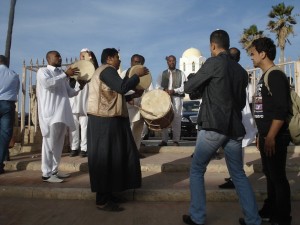
The poets’ hope is that to poetry should play a major role in communicating the current and different events happening around the world.
The second panel was “Poetry in the world of digital globalization” in which participants discussed the affects of publishing poetry on the internet. It also questioned whether the dissemination of poetic works on the internet is healthy for poetry in the digital age in which we live. The main participated poets in this panel were to be Margret Obank and Nii Parkes (Britain) and Ulrich Schreiber (Germany).
On Monday, the last day of the festival, the organizers plan two more sessions. The first is named “Place, Exile and Poetic Innovation.” It will highlight innovator poets like Rasha Umran (Syria), Embarak Oussat (Morocco) and Amhed Al-Mullh (Saudi Arabia). They will discuss the effects of travels on the formation and shaping of the poet and their poetry, and the impact on a poet’s work of him or her remaining in the place where s/he belongs.
The session will also probe how can poetry instill and develop creativity in poets to form a sense of harmony and meditation despite the fact that they are surrounded by a world of constant displacement and mobility.
The second session will be “Arabic Poetry: New Directions”. In this last session, some of the poets, such as Mathew Sweeny (Ireland) and Muftah Al-Amari (Libya), will look into the necessity of writing poetry that deals with the latest developments in politics, culture and society. [/restrict]
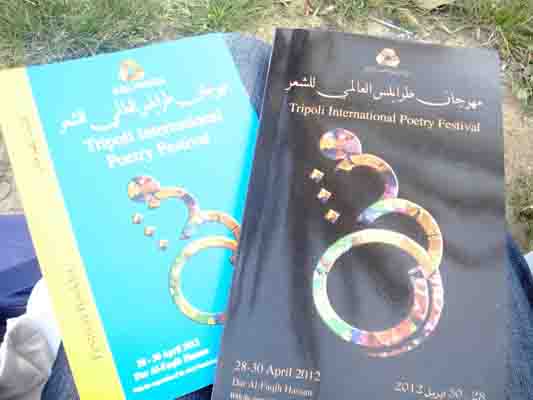
![Poetry . . .[restrict]the biog booklet of poets and the new magazine Arkno](http://www.libyaherald.com//wp-content/uploads/2012/04/Poetry-the-biog-booklet-of-poets-and-the-new-magazine-Arkno-300x224.jpg)





